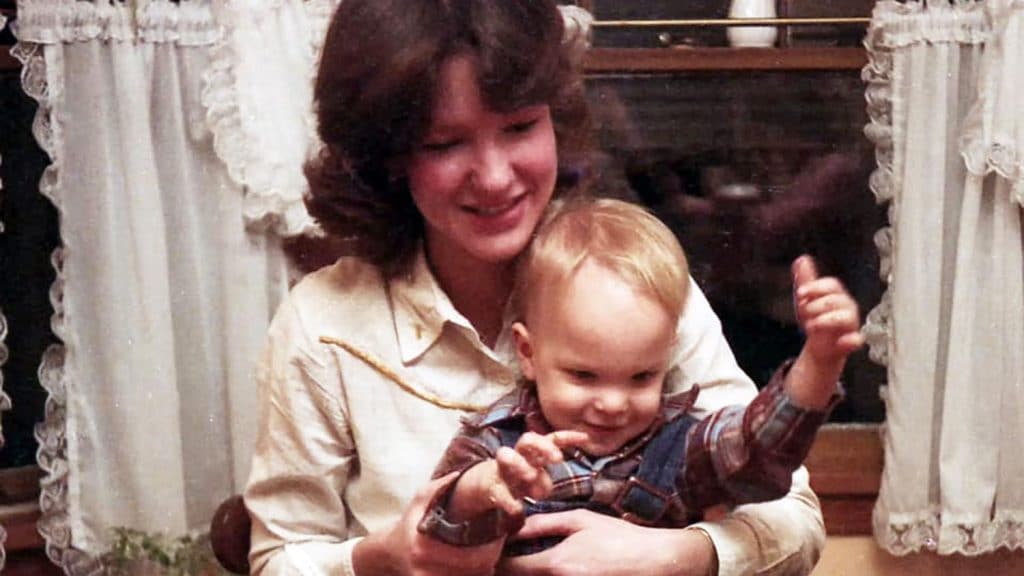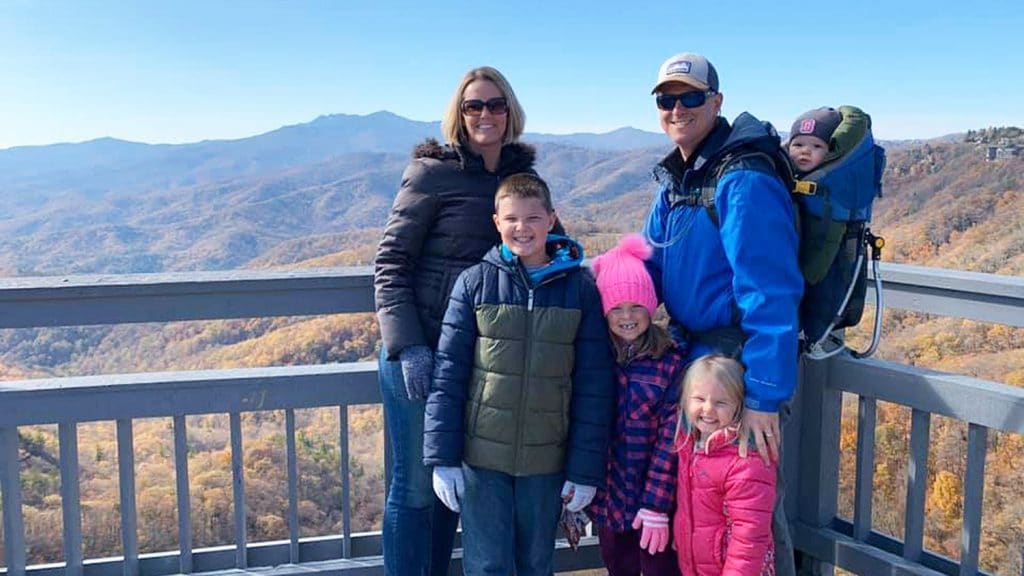Voices is a series of first-person narratives written by members of the NC State community reflecting on experiences that have shaped their personal and professional lives. Dave Herpy, North Carolina 4-H camping specialist, is a career public servant who dedicates his life to serving others through camp, outdoor recreation and youth development.
Going through the experience of losing my mother to cancer when I was 25 completely changed my perspective on life and really helped shape who I am as a person and as a father. Trying to help and serve others and make this world a little better has been my purpose since then.
Along the way, I identified six guiding principles that have been a driving force for my career and life, and I want to share them with you.
But first, my story.
I grew up in Northeast Ohio, near the shores of Lake Erie. I had a connection to the outdoors at a very young age. My parents didn’t have a lot of money, but we went on family camping vacations together, starting when I was just 3 years old. Participating in the Cub Scouts and Boy Scouts also fostered my love of the outdoors and helped me develop lifelong hobbies of cycling, hiking and rock climbing.
I grew up in a close-knit family, with a younger brother and parents who taught me the value of hard work. My mom and I were especially close — she was always there for me.

When I was in high school, she had a mole on her shin removed. The dermatologist discovered that it was melanoma, so they removed more skin around it. They thought they got all the cancer, and my mom went about living her life. She gave birth to my sister about a year later, when I was almost 18.
During my senior year of high school, I auditioned for music programs at several universities and won a scholarship to study music education at Kent State University. But during the summer after graduation, I started working at the YMCA as a camp counselor, and everything changed.
Working at the YMCA opened my eyes to the possibility of a career tied to my love of the outdoors, and I just didn’t see myself being a music teacher. So I withdrew from Kent State and enrolled in my local community college while continuing to work for the YMCA part time.
After two years, I earned an associate’s degree from Lakeland Community College. Realizing I could make a difference for kids and families in our community — while also staying connected to the outdoors — inspired me to transfer to Kent State as a junior to pursue a bachelor’s degree in recreation management.
Then, during my senior year of college, my mom’s cancer returned.
The doctors found a lump in her groin and discovered it was melanoma that had spread to her lymph nodes. She began treatment when I started graduate school at Ohio University in 2001.
‘Always Lifting Others Up’
I did a lot of traveling back and forth to see her during those years when she was sick, and I had the fortune to meet my wife Courtney on a visit toward the end of my mother’s illness. We connected through mutual friends at a Kent State homecoming event and discovered that, although we’d never met in college, we had actually lived in the same dorm.
Courtney and I became engaged a few months later, and I’m so grateful she got to meet my mother. I remember telling her that Courtney was “the one,” no doubt about it.

My mom tried different experimental treatments during those few years, but there’s no cure for melanoma, unfortunately — it’s the deadliest form of skin cancer. She passed away on Nov. 7, 2004.
She had made such a tremendous impact in our community, even though she was only 44 when she passed. During the calling hours before her funeral, the line flowed out the door and the church was packed.
In memory of my mother, a family friend bought a wheelchair lift for one of the church entrances. The plaque on it says, “In loving memory of Maria Herpy, who was always lifting others up.”
My mother didn’t have a career — she didn’t have many material possessions — but she loved life. She loved being a mom. She loved her purpose in this life. She lifted others up. And I try to do the same with my family and those I interact with every day.
A New Chapter
I had struggled with depression since my mom first became sick, and after she passed away, I experienced several major episodes. She had actually been the first person to help me get treatment for it, so I was able to get through it by continuing to see a counselor and take medication.
I want to say to those who are going through difficult times — especially now during the Covid-19 pandemic — don’t be afraid to ask for help, personally or professionally. There’s such a stigma with mental health in our society, which is unfortunate. I think we need to be able to have these conversations because they’re so important.
About a decade after my mom died, Courtney and I decided to move to North Carolina. It had been our family dream to live here, so when I discovered the opportunity to work with North Carolina 4-H, we made the move. Courtney is a CAT scan technologist, and she found a position at the hospital near our home.

Working for 4-H is such a natural fit for me. Being able to make a difference in the lives of youth and citizens across the state is so important. And I appreciate that our programs focus on the whole individual, including physical, mental and emotional health.
Courtney and I have four children that range in age from two to 10. Our life is full, and I couldn’t be more grateful for the privilege of being a husband and father.
The 6 P’s
There are six principles that have contributed to my happiness in career and in life, and I want to share them with you. But first, it’s important to acknowledge that happiness is a journey, not a destination. Also, the “6 P’s” concept is not my original idea. Google it and you’ll find a wide variety of information.
The following are my 6 P’s for happiness in career and life. I encourage you to discover yours.
- Purpose. First and foremost, we must discover our purpose in life or our “why.” This should guide every decision we make and provide direction in career and life. As Mark Twain said, “The two most important days in your life are the day you are born and the day you find out why.”
- Passion. A close second is passion. When you follow your passion, you will almost always be happy. While you will have your up and down days, following your passion will help ensure more up days than down days. If you follow your passion, happiness will follow you.
- People. People should always be your top priority, especially in a leadership role. When people are your top priority, you will focus your effort, energy and time on serving them. Leadership is about serving others. Put people first and they should be happy with you.
- Priorities. Keep your priorities straight. For me, my priorities in order are: my family, my team, my career and my hobbies. My family comes first in everything I do and every decision I make. When you keep your priorities straight, you will be happier.
- Positivity. Maintaining a positive attitude in all situations can take you a long way in life. While certain situations can be disappointing or frustrating, it is how you handle those with a positive attitude that can make the difference. As Charles R. Swindoll said, “Life is 10% what happens to me and 90% how I react to it.”
- Perseverance. Perseverance is defined by Merriam-Webster as “continued effort to do or achieve something despite difficulties, failure or opposition.” It’s true that we learn more from our failures than our successes. It is our ability to get back up and keep going after failures that will determine our happiness. As the saying goes, “When the going gets tough, the tough get going.”
This post was originally published in NC State News.
- Categories:



